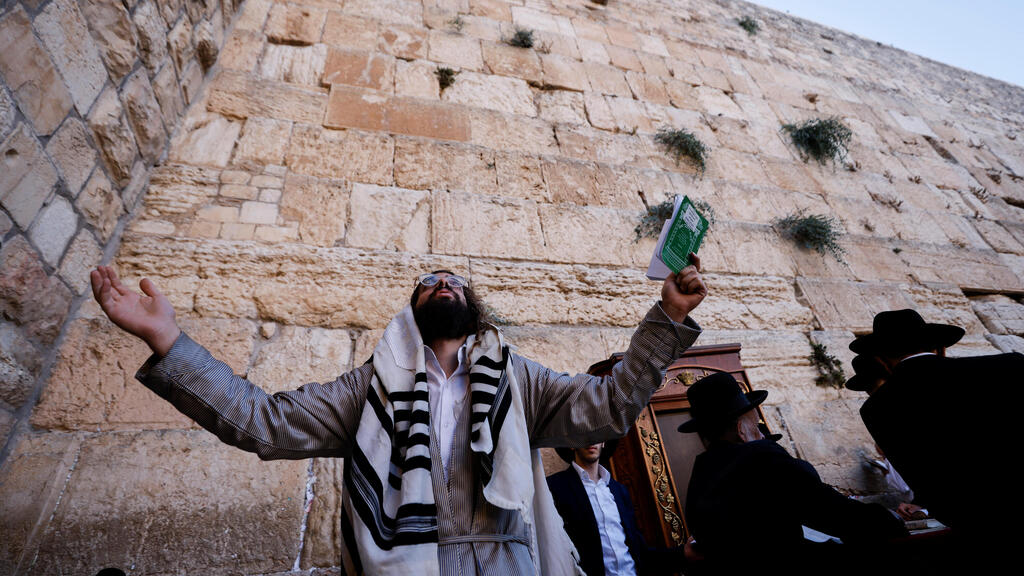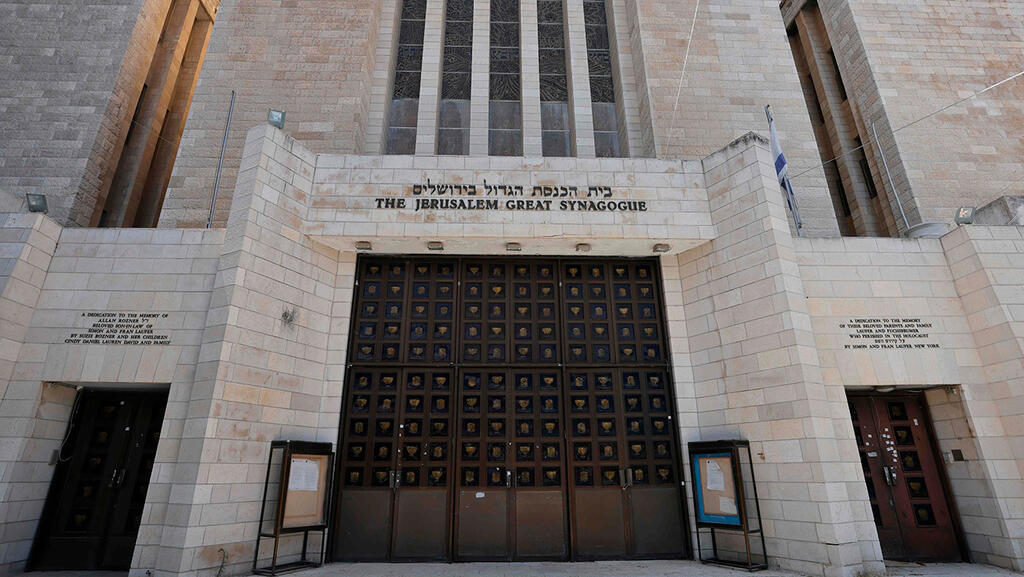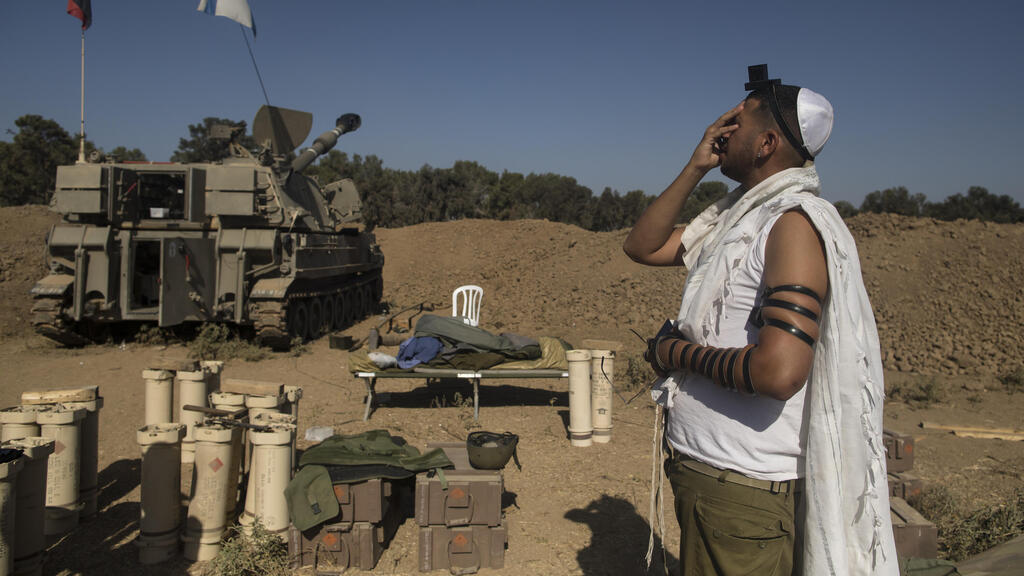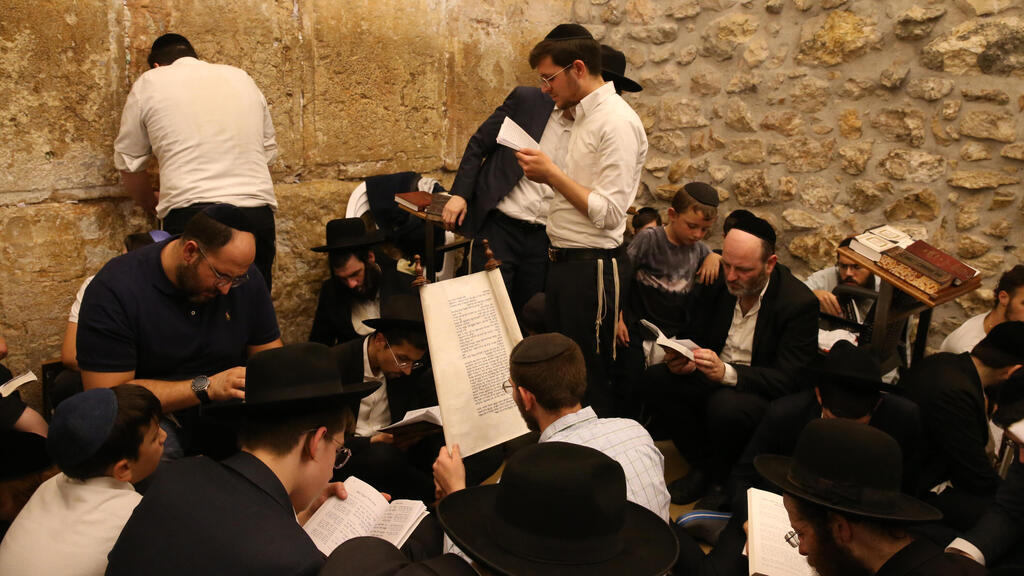Getting your Trinity Audio player ready...
A new global survey by the Pew Research Center sheds light on how Israelis and Jews relate to spirituality, God and the afterlife - offering a nuanced portrait that both confirms and challenges stereotypes. The report, published Tuesday, draws on responses from over 50,000 adults in 36 countries and reveals that Israel often stands out - sometimes as an outlier, and at other times as a reflection of broader global trends.
Eighty-three percent of Israeli adults say they believe in God, placing the country in the upper-middle tier globally. But when broken down by education level, Israel presents one of the starkest divides: among Israelis with postsecondary education, belief in God drops to 64%, compared to 83% among those with a high school education or less. That 19-point gap is among the largest recorded in the survey, underscoring how higher education correlates with lower religiosity in Israel more sharply than in most other countries surveyed.
Israel is also the only country in the study where men report higher rates of daily prayer than women. Forty percent of Israeli men say they pray at least once a day, compared to just 28% of women. The same pattern emerges in synagogue attendance, with Israeli men participating in religious services more frequently than women—a gender dynamic that runs counter to the global trend and is shared only with Muslim-majority countries like Turkey and Bangladesh.
In matters of spirituality that go beyond formal religion, Israel straddles two worlds. Seventy percent of Israelis believe that animals can have spirits or spiritual energies, slightly above the 62% median among the 35 countries surveyed. But when it comes to nature-based spirituality, Israel ranks dead last: only 28% of Israeli adults say that mountains, rivers, or trees can possess spiritual energy. The global median for this belief is 56%.
The survey also explored beliefs in life after death, reincarnation, spiritual energies in objects and practices like lighting candles or incense. In Israel, 92% of those who pray daily believe in an afterlife, compared to just 45% of those who don’t—one of the highest disparities observed in the study. Reincarnation also finds a foothold in Israeli society, with 34% of adults saying they believe people are reborn again and again, slightly above the global median.
Get the Ynetnews app on your smartphone: Google Play: https://bit.ly/4eJ37pE | Apple App Store: https://bit.ly/3ZL7iNv
When it comes to beliefs in ancestral spirits, 31% of Israeli Jews say they believe the spirits of ancestors can help or harm the living—nearly double the rate found among the country’s Muslims. And while belief in spirits residing in inanimate objects like crystals or stones remains relatively low in Israel, a full 29% of Jewish Israelis say they believe in curses, spells or other forms of magic—placing them well above their Jewish counterparts in the U.S., where only 15% share that belief.
Though Israel may be skeptical of crystals, horoscopes have found modest popularity. Fourteen percent of Israeli adults report consulting an astrologer or fortune teller—more than in secular Western countries like France, Canada or Germany, but well below levels reported in parts of Latin America or South Asia. As in many other countries, Israeli women are more likely than men to believe in or consult forms of divination.
When it comes to the belief that “there is something spiritual beyond the natural world,” Israelis again display a counterintuitive pattern. Among those with a high school education or less, 73% affirm this belief. But among the more educated, the figure drops to 56%. This makes Israel one of the few countries where spiritual belief declines with education, in contrast to places like Brazil, Chile and Mexico, where higher education tends to coincide with greater openness to metaphysical ideas.
Jewish respondents in both Israel and the United States—the only two countries where sample sizes allowed for analysis of Jewish perspectives—stood out in multiple ways. Jews were less likely than Muslims in the same countries to believe in life after death. At the same time, Jews were the most likely religious group in both countries to report lighting candles or incense for spiritual or religious purposes.
Forty-two percent of Israeli Jews say they carry or wear religious symbols, such as the Star of David—a relatively high percentage globally, and one that reflects the centrality of Jewish identity in the public sphere. In Sri Lanka, for comparison, Hindus were found to be the most likely of all surveyed groups to light incense, with near-universal rates of participation. Meanwhile, in the United States—often viewed as a benchmark for modern religiosity—belief in the afterlife remains high at 70%, though the country also reflects growing spiritual individualism, with 79% of Americans saying there is “something spiritual beyond the natural world.”
While religiosity in Israel remains relatively high by Western standards, the findings illustrate a complex and sometimes contradictory religious landscape. On one hand, the country adheres to many traditional patterns, with prayer and belief in God still prevalent. On the other, it resists certain forms of spirituality that are growing in popularity elsewhere, particularly those rooted in animism or non-institutional belief systems.
As with previous Pew studies, the results underline generational and educational divides, gender differences and the unique place of Jews in global religious discourse. But they also remind us that even within a religiously defined state, belief is anything but monolithic—and that spirituality in Israel, like elsewhere, is shaped as much by culture, class and context as by creed.







